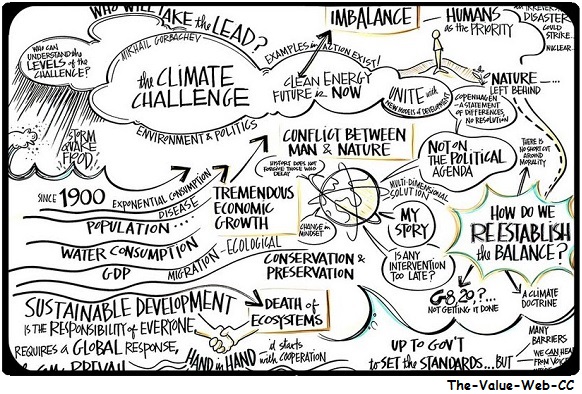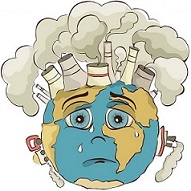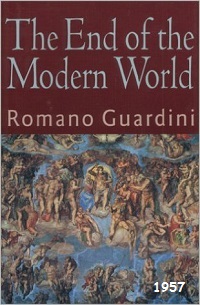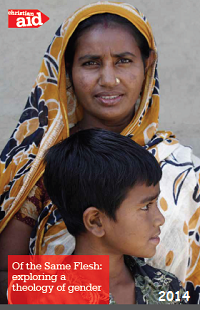

Following the resurrection of Jesus, the assumption of Mary prefigures the assumption of humanity and the entire community of creation
(cf. Laudato Si, # 241)
|
Excerpts from the encyclical Laudato Si'
"Everything is connected. Concern for the environment thus needs to be joined to a sincere love for our fellow human beings and an unwavering commitment to resolving the problems of society." Pope Francis, Laudato Si, # 91
"All of this shows the urgent need for us to move forward in a bold cultural revolution. " Pope Francis, Laudato Si, # 114
"Many things have to change course, but it is we human beings above all who need to change. We lack an awareness of our common origin, of our mutual belonging, and of a future to be shared with everyone. This basic awareness would enable the development of new convictions, attitudes and forms of life. A great cultural, spiritual and educational challenge stands before us, and it will demand that we set out on the long path of renewal. " Pope Francis, Laudato Si, # 202
ARTICLES
Editorial Essay: Some Questions for Pope Francis
The Care-Centered Economy, Part 1: The dichotomization of humanity, by Ina Praetorius
Thoughts on Pope Francis' Laudato Si, by Herman Daly
Our Common Home: Climate Change Brings Moral Change, by Mary Evelyn Tucker
Why the Opposition to Laudato Si’?, by Carmine Gorga
Paradigm Junction - Our Journey Into Today, by Don Chisholm
The Sustainability Conundrum, by Richard Hampton
The Lancet: Fossil Fuels Are Killing Us... Quitting Them Can Save Us, by Jon Queally
Good Health Requires Different Economics, by Trevor Hancock
Rethinking Basic Income in a Sharing Society, by Rajesh Makwana
Quantifying the Anthropogenic Contribution to the Global Background Level of Atmospheric CO2, by Fred Haynie
Risk Assessment: What is the Plausible 'Worst Scenario' for Climate Change?, by Judith Curry
A Reflection on Pope Francis' Clarion Call to Share the Planet, by Adam Parsons
SUPPLEMENTS
Advances in Sustainable Development (news, pubs, tools, data)
Directory of Sustainable Development Resources (1000+ links)
Strategies for Solidarity and Sustainability (mitigation/adaptation)
Best Practices for Solidarity and Sustainability (business/governance)
Fostering Gender Balance in Society (peace, food, health, energy)
Fostering Gender Balance in Religion (religious traditions, spirituality)
Some Questions for Pope Francis
In Response to his Encyclical Letter on Social and Ecological Justice
The current mix of global issues, social and ecological, constitutes a challenge without precedent in human history. Pope Francis' recently published encyclical, Laudato Si' - On the Care of Our Common Home, is a significant contribution to the cause of social and ecological justice. It will take time to digest the contents of this historical document, which plainly states that contributing to the resolution of these issues is a "moral imperative" (# 208) for each and every person alive today; and, needless to say, from those who have been entrusted with much, much more will be asked (Luke 12:48). The outline of the document is as follows:
|
Introduction and Appeal
Chapter 1. What is Happening to Our Common Home
Chapter 2. The Gospel of Creation
Chapter 3. The Human Roots of the Ecological Crisis
Chapter 4. Integral Ecology
Chapter 5. Lines of Approach and Action
Chapter 6. Ecological Education and Spirituality
Conclusion, Prayers, and References
|

|
Laudato Si builds on a long series of Catholic social justice pronouncements, and extends them to the ecological dimension: taking care of each other, and taking care of creation, go hand in hand. Similar pronouncements have been published, or are currently in preparation, by other religious institutions (Orthodox, Anglican, Buddhist,
Islamic, etc.). Given that 80% of the world's population adheres (at least nominally) to a religious tradition, it is good to see religious leaders making this a religious issue. For those who would prefer to keep business and politics conveniently separated from social and ecological ethics, Pope Francis has a very good and succinct answer: "everything is connected" (# 91; the reality of complex interconnections is mentioned 18 times).
That said, there can be no question that the Pope's concerns revolve around the poor (mentioned 61 times!) and how most of the policy strategies and business practices prevalent in the current world system seem to work out in favor of the rich at the expense of the poor. After chapter 1, which describes the current symptoms of social and ecological degradation in the world system, comes the search for causes. The encyclical is more about the cultural roots of the crisis than about prescribing action items for people and institutions. It is not a "do's and don'ts" document. It is an appeal to think positively and act responsibly. For Catholics, and generally for all Christians, it provides a beautiful theological reflection on the history of salvation and the cosmic Christ; but every man and woman of good will is invited to act seeking an ethical balance of self-interest and the common good, according to their conscience.
The papal strategy behind this encyclical is yet to emerge, but the document is certainly getting a lot of attention worldwide, with reactions ranging from enthusiastic admiration to dismissive ridicule. If the strategy is to create confusion, success is already assured; and creating confusion may be a good way to help people understand that nobody has all the answers and we better stick together in solidarity in order to muddle through the crisis as best we can. If nothing else in order to add to the confusion, some of the clearly positive insights of Laudato Si are summarized below, followed by some questions about issues that need clarification.
POSITIVE ITEMS (other than theological insights)
1. Reiterates critique of excessive consumerism and financial speculation. It is noted that "capitalism" is not mentioned, and the critique is not about free enterprise but about consumerist extravagance and greed in seeking short-term profits regardless of long-term consequences while ignoring the dire poverty of billions. Making a profit is fine, but not at the expense of the poor.
2. Extends Catholic social doctrine to include coupling of social and ecological justice. A "bold cultural revolution" is needed (# 114) to redirect human activity from individualistic pursuit of money, power, and honors to more communitarian concerns for social and ecological justice. No human activity, including the use of natural resources, is morally neutral (# 195).
3. Exposes the absurdity of expecting social issues to be resolved by technological fixes. Advances in science and technology can enable ethical decisions, but do not exonerate humans from making such decisions. For instance, the abolition of slavery was facilitated by the industrial revolution, with fossil fuels replacing slave labor; but other forms of slavery still exist.
4. Avoids too much pontification and invites dialogue with all stakeholders. The encyclical is refreshingly ambiguous, meaning that ambiguities are plainly stated as such rather than the language being carefully crafted to remain ambiguous while seeming to provide some "definitive" answers. Open dialogue and honest negotiation is the way to go; there are no "silver bullets."
5. Suggests the need for some form of global governance. Global problems that transcend national boundaries require global solutions. It is as simple as that. It will not be easy, but it should be possible to work out the required "checks and balances" guided by the subsidiarity principle that responsibility and authority should be delegated to the lowest capable level (# 157, 196).
6. Suggests "differentiated responsibilities" for rich/poor nations in facing global issues. This simply means that those who do more harm are more responsible to fix the mess (# 52, 170). It would be utterly unfair to subsidize those who pollute the planet and penalize those who cannot afford to pollute, let alone pay for environmental remediation by way of remaining underdeveloped.
7. Calls for ethical renewal of human relations (human-human, human-nature). This is really the core message of the encyclical: humans are the problem, and humans must provide the solution. "There can be no renewal of our relationship with nature without a renewal of humanity itself" (# 118). Human relations, and relations between humanity and nature, image each other.
8. Upholds the pro-life ethic without being too judgmental about specific issues. Life is sacred from conception to natural death. This is fundamental for human solidarity and should not be compromised for reasons of convenience or expedience. That said, there are no perfunctory condemnations, especially of poor people for whom having sex is the only affordable comfort.
9. Uses gender inclusive language for the first time at the encyclical level. This may sound like grammatical minutiae, but it is a good sign. Like "the birds, who sing and announce the dawn when it is still dark" (Tagore), it signals that the patriarchal culture of male hegemony, responsible for so much social and ecological abuse, is passing away. Patriarchy, requiescat in pace.
CONFUSING ITEMS (formulated as questions)
1. Even if consumption is minimized, is it possible to have unlimited population growth? The encyclical is too ambivalent (perhaps even evasive?) when it comes to issues of human fertility and reproductive health (#50, 155). All ecological impacts are the product of population and consumption. Even if consumption is minimized down to subsistence level, unlimited population growth in a finite planet is a mathematical impossibility. Regardless of advances in technology pursuant to efficient use of energy and other resources, isn't it more reasonable to propose mitigation of both consumption and reproduction? What about fostering both responsible parenthood and responsible consumption with the same emphasis?
2. Can humans be expected to voluntarily minimize both consumption and reproduction? In a materialistic culture, people tend to consume more until constrained by limited resources. However, demographic geography shows that people in the industrialized nations, with better standard of living and better education, tend to avoid "reproducing like rabbits." It is among the very poor, for whom sex is the only affordable comfort, that excessive fertility rates are observed, often as a result of abusive sex outside of any form of stable marriage covenant. Gender inequality, and the consequent population growth due to irresponsible parenthood, are forms of materialist consumerism, i.e., using the human body as object for sexual gratification. Is it really possible to temper consumption and reproduction without tempering the patriarchal mindset of domination by brute force? It is not insignificant that the corruption of gender relations is the first and most universal consequence of "original sin" (Genesis 3:16). What about fostering both responsible parenthood and responsible consumption via a cultural evolution from patriarchy to solidarity, including "gender solidarity" between man and woman, and between humanity and nature?
3. Is it possible to reform the current financial system of discounting the future? People live in time and space, and tend to be concerned with whatever is short-term and close by. Toxic chemicals in water, pollutants in the air, genetic manipulations of the food chain, even climate change, become concerns when people suffer the consequences. As long as making a profit is the driver, a dollar in the future is worth less than a dollar now. How do we transition from economic growth to economic degrowth and/or steady-state economics? Are we to discontinue the practice of "creating" money (via printing or opening lines of credit) to ensure "growth"? Is "the invisible hand of the market" amenable to "ecological conversion"? As long as the "money, power, and honors" paradigm prevails, is there any realistic hope for a new civilization of economic equality, social solidarity, and ecological sustainability?
4. Is it possible to renew human relations within the framework of patriarchal culture? What came first, the patriarchal culture of male hegemony or the "money, power, and honors" paradigm? The two are as tightly coupled as "the chicken and the egg," and this reality becomes more easily visible in gender relations and family life, but also governs relations between humanity ("male") and the human habitat ("female"). Is it reasonable to seek a "renewal of humanity" (# 202) as long as patriarchy prevails in social and religious institutions worldwide?
5. Is integral ecology/integral human development realistic under patriarchal norms? Integral ecology is existential harmony between humans and nature. Integral human development is harmonious development of the human person in all dimensions: physically, emotionally, intellectually, spiritually ("body and soul"). Given the overwhelming clinical consensus that such integral human development, and consequent integral ecology, is contingent on integration of the masculine and feminine polarities in every human person, is it reasonable to expect that humanity can be renewed as long as patriarchal sexism, conscious or unconscious, is not recognized as practically synonymous (cf. Genesis 3:16) with the "original sin" of humanity?
6. Is there too much emphasis on scientific consensus about anthropogenic climate change? Is this encyclical really about the debatable reality of "climate change"? Or is it about seeking the root cause of all social and ecological injustices, that it can be removed or at least the most harmful effects mitigated? Surely, the planet is not the problem. Humans are the problem. Why are humans he problem? Because, according to the biblical tradition, the original unity of man and woman was corrupted by what Christians call "original sin." In the beginning, humans were created male and female (Genesis 1:27; 2:7, 22-23; 5:1-2) and lived in perfect harmony with each other and with nature (the "garden of Eden"). In a process of rebellion and power struggle, this existential communion was broken by brute force, and the original relationship of communion between man and woman became a relationship of male domination and female subordination; from this fundamental corruption of human nature, all other forms of human misbehavior followed and the patriarchal culture gradually emerged. The encyclical (# 70) mentions the story of Cain and Abel in Genesis 4, but fails to go back to the story of Adam and Eve in Genesis 3. Why?

Romano Guardini envisioned a "new order" enabled by earnestness and gravity. "Earnestness is the will to know what is really at stake; it must brush aside empty rhetoric extolling progress or the conquest of nature; it must face heroically the duties forced upon man by his new situation. This gravity must be purer and stronger … because it must restrain the chaos rising out of the very works of man."
|
7. What is the scope of the "cultural revolution" anticipated by the encyclical? Patriarchy, as a culture of domination, is not the only issue, but it is arguably the common denominator for all the social issues that are currently precipitating the ecological crisis: "What we call Man's power over Nature turns out to be a power exercised by some men over other men with Nature as instrument" (C. S. Lewis, The Abolition of Man, 1943). The work of Romano Guardini (The End of the Modern World, 1957; Power and Responsibility, 1961), who wisely foresaw the need for a "new order" of things in human relations, is quoted by Pope Francis (# 203) to emphasize that the "cultural revolution" he is proposing is not a superficial one, but one that will require profound change in human attitudes and behavior. Surely, patriarchy is not the only issue, but it is the most crucial one to resolve in order to make the modern world both humane and sustainable, even if it requires personal, societal, and civilizational transformation. Those who are satisfied with the "old order," preferring to remain blind to inconvenient realities, and hoping that the complex issues of the Anthropocene will be resolved by the resilience of "Mother Earth" and/or technological breakthroughs, fail to grasp the significance of the Pope's message. It is not simply a matter of fixing specific dysfunctions of the "modern world" of economic growth engendered by the industrial revolution. It goes back to the agricultural revolution, or even further back to the inception of human history. Could it be that the end of the modern world is also the end of the patriarchal world? If so, can religious institutions -- the Catholic Church included -- preach reform without reforming themselves? According to the Nicene Creed, the Church is "one, holy, catholic, and apostolic," but not necessarily patriarchal. Can the Catholic Church preach by way of example?

"To reflect before God on gender...is to think about what it means that we are male and female. It is to ask what it would mean to experience our being gendered as gift rather than danger, a source of life and hope rather than oppression or fear, as something to be received gratefully from God, rather than experienced as a source of strife."
|
SUMMARY
In brief, the encyclical is a significant contribution to the cause of social and ecological justice. It makes it abundantly clear that poverty remediation and ecological sanity go hand in hand. There is a huge gap with regard to issues of population growth, and gender and reproductive justice, which hopefully can be filled as all the practical implications of the document are widely discussed. Pope Francis, and the encyclical, deserve better than some of the nonsensical, self-serving reviews published thus far. Some good reviews are included in this issue, and others will be collected in subsequent issues of this journal.
The encyclical is a new light on the road, not the end of the journey. Pope Francis cannot walk on water, but his credibility makes him a formidable change agent. Politicians, business executives, and leaders in the professions, as well as the sustainable development community, need to recognize that a new order of things is emerging worldwide. The consequent cultural evolution will influence all human institutions, both secular and religious, in many significant ways; it may even require adjusting the moral compass of civilization.
In today's globalized world, this cultural evolution is bound to transcend national and institutional boundaries. All cultures, and all religious traditions, will be affected. In the Roman Catholic Church, a Synod of Bishops is planned for October 2015 to discuss issues of the family. Since the Church is a family, hopefully they will refrain from pontificating too much about the "domestic church" and consider proper reformations of the "hierarchical church." Nothing human can remain in static isolation from the "cultural revolution" envisioned in the encyclical. Secular negotiations of the kind expected to happen in the United Nations summits about the Sustainable Development Goals (September 2015) and Climate Change (December 2015) do not exonerate religious institutions from letting go of archaic patriarchal structures that have long constrained them but are not intrinsic to biblical revelation and other sources of religious enlightenment.
All human institutions must discern the difference between ancient wisdom and dust accumulated during millennia of patriarchal conditioning. But old habits die hard. Can we reasonably hope to have a civilized Anthropocene? It depends. It depends on human adaptability and solidarity. The way things are looking up at the moment, change is the name of the game.
"What have you done with the garden that was entrusted to you?" (Antonio Machado)
|